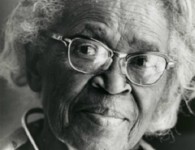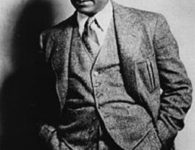Dorothy Creole was one of the first black women in the Dutch colony of New Amsterdam on the island of Manhattan. She was African, but she came from a world where West Africans and Europeans had been trading for two centuries and their cultures had mixed.
It is believed that Dorothy arrived in 1627, when records showed that three enslaved women arrived into New Amsterdam. The town was small with roughly 200 people making up the community. All slaves who arrived in the colony at this time were considered the property of the Dutch West India Company.
Dorothy and the other women who arrived during this time were to be wives for the male slaves and house slaves for the Dutch women. Dorothy married Paulo d’Angola, who was one of the first group of slaves brought to New Amsterdam in 1625. Paulo’s last name was the most common surname among the slaves, and it meant that he came from Angola, on the southwestern coast of Africa.
Paulo later petitioned for his freedom and won in 1644. Paulo and Dorothy were given their freedom along with other slaves who had petitioned at the time. They were later able to get titles to land, which became known as the “Land of the Blacks.” The slaves were never treated as if they were white, but as land owners.
source:
http://www.womenhistoryblog.com/2008/01/dorothy-creole.html





















4 Comments
I more or less share your take on this subject and look forward to upcoming posts and comments here at blackthen.com. Keep up the good work!
I enjoy your opinion on this topic and look forward to upcoming posts and comments here at blackthen.com. Thanks!
Like this site– extremely easy to navigate and lots to explore!
I’m gratified with the way that blackthen.com covers this sort of topic! Usually on point, often controversial, always well-researched and more often than not quite thought-provoking.